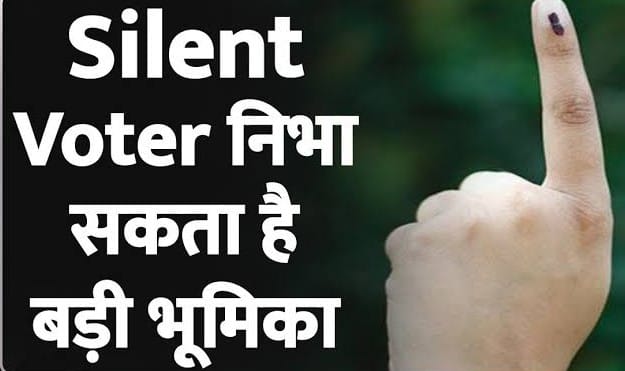May 24
Sandeep Dhand Ludhiana
Silent voters are individuals who exercise their right to vote but do not openly express their political preferences or opinions. Their silence can significantly influence election outcomes because their intentions are often difficult to predict.
Key Characteristics of Silent Voters
- Discreetness : Silent voters do not openly discuss their political views, neither in public forums nor in private conversations with family and friends.
- Survey Evasion : Often, these individuals either do not participate in political surveys or provide non-committal or misleading answers when they do.
- Unpredictability : Because they keep their preferences private, it is challenging for analysts to predict their voting behavior accurately.

Reasons for Their Silence
- Fear and Pressure : Many silent voters refrain from expressing their political opinions due to fear of social ostracism, family pressure, or even professional repercussions.
- Desire for Privacy : Some people value their privacy and choose not to disclose their political beliefs to avoid unwanted scrutiny or debate.
- Feeling of Ineffectiveness : There are voters who believe that their opinions will not make a significant difference, so they choose to remain silent.
The Impact of Silent Voters on Elections
Silent voters can have a profound impact on the outcomes of elections. When public opinion polls are conducted, the silence of these voters can lead to inaccurate predictions. These voters can sway the results at the last moment, often leading to unexpected outcomes.
In high-stakes elections, silent voters become particularly significant. Political campaigns might fail to address or appeal to these voters if their preferences are not well-understood. Consequently, understanding the silent voter demographic becomes crucial for political strategists.
Case Studies and Examples
Historically, silent voters have played pivotal roles in various elections around the world. For instance, in the 2016 United States presidential election, many analysts believe that silent voters contributed to the unexpected victory of Donald Trump. These voters, who did not publicly voice their support for Trump, significantly influenced the election results by casting their ballots in his favor.
Similarly, in other democratic countries, silent voters have often defied poll predictions, leading to surprising victories or losses for political candidates. This unpredictability underscores the importance of accounting for silent voters in election strategies.
Strategies to Engage Silent Voters
- Targeted Communication : Political campaigns should craft messages that address the concerns of silent voters without alienating them. This involves understanding their underlying issues and framing policies that resonate with them.
- Privacy Assurance : Ensuring voters that their privacy will be respected can encourage them to participate more openly in surveys and discussions.
- Creating Safe Spaces for Dialogue : Establishing platforms where individuals can discuss political issues without fear of backlash can help silent voters feel more comfortable expressing their views.
Conclusion
Silent voters, though not vocal, play a crucial role in the democratic process. Their choices can change the course of an election, making it essential for political parties and candidates to understand and address their concerns. By acknowledging and engaging with silent voters, democratic processes can become more inclusive and representative of the entire electorate. Understanding these voters’ motivations and concerns is vital for creating effective and encompassing political strategies.